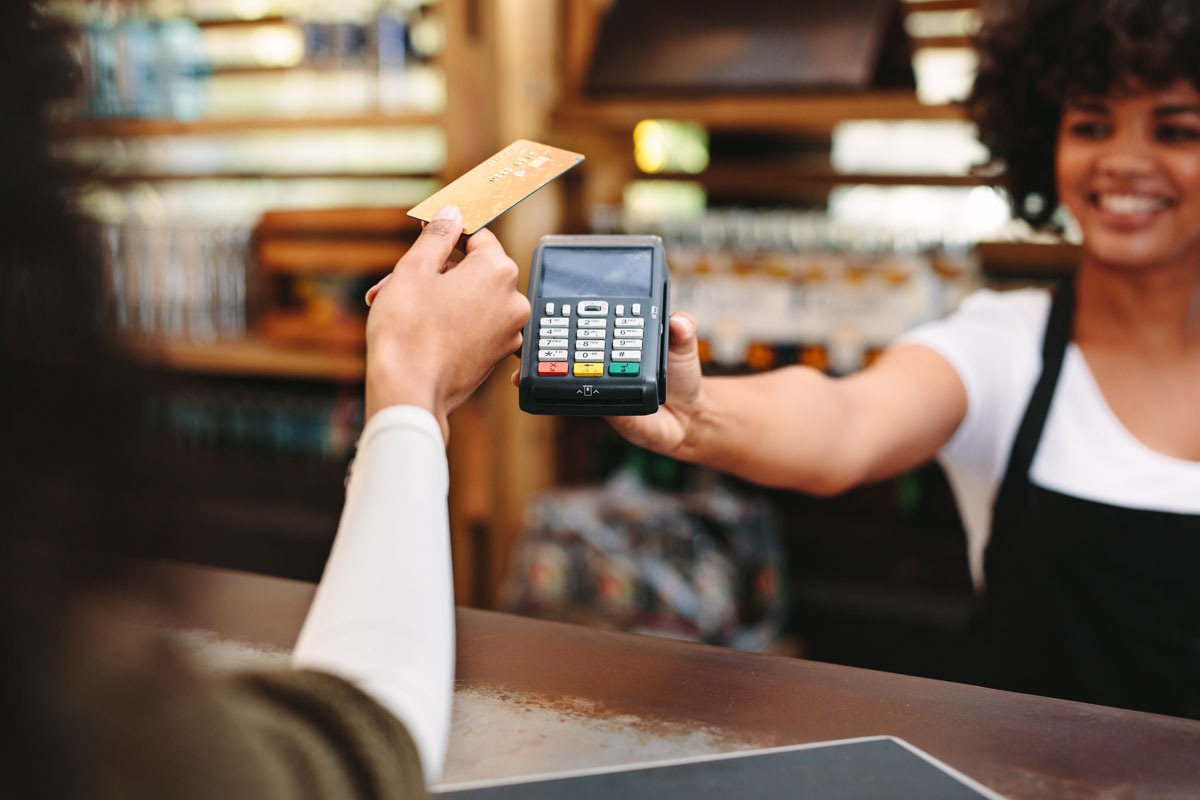Digital is taking over every industry—and financial services is no exception. With AI-powered self-service transactions, as well as mobile-based lending and analytics-driven personalisation of services, the opportunities for banks to redefine customer experiences are truly endless. This article explores some of these opportunities and trends, with a particular focus on the African financial services market.
Overview of the Changing Landscape
Over the past few years, the financial services industry has been witnessing a significant digital transformation.Various fintech and non-traditional players are entering the banking space with simple, customer-centric solutions that are free from the challenges of legacy systems.
Even large tech companies, such as GAFAM-BAT (Google, Apple, Facebook, Amazon, Microsoft, Baidu, Alibaba and Tencent), are using their technology prowess, large user base, and big data analytics to offer superior financial services experiences. Meanwhile, regulatory authorities are trying to put in place frameworks to provide oversight of these disruptors while also encouraging innovation.
Customers today are exposed to various disruptive digital offerings from several industry players. They expect their banks to provide similar seamless and intuitive experiences across channels, as well as more bang for their buck. Therefore, existing banks are faced with two challenges. One is to improve efficiency, and foster new innovation-led operating models that can lower the cost of service. The second is to continue supporting their legacy systems, while meeting strict regulatory guidelines.
According to PwC’s 23rd Annual Global CEO Survey, the speed of technological change is a top 10 concern for business leaders worldwide. In banking and capital markets, it’s a top 5 threat. One possible reason for this is that the time it takes for new technologies to go from conceptualization to wide-spread adoption is accelerating. Landline telephones took a century to be adopted among 95% of U.S. households. By contrast, cellular phones achieved the same in less than 25 years.
At Absa Group, there is a high degree of awareness around the changing technology landscape. Efforts are being made to accelerate our digital transformation journey by opening up our legacy systems through micro-services / APIs to collaborate with fintechs and startups. In fact, one of the key pillars of our new growth strategy is to build a scalable digital-led business.
With the Barclays separation delivered, our focus over the next 18-24 months is to identify and implement key strategic digital initiatives that will place us at the forefront of the rapidly evolving competitive environment, and help us enhance the customer experience.
Key Areas of Disruption in Africa’s Financial Services Landscape
Fintech in Africa has tremendous potential to make an impact, given that the continent has the second-fastest growing banking market in the world, and is also the global banking industry’s second-most profitable region, according to McKinsey.
Some of the key digital or technology trends that we believe will have a far-reaching impact on the financial sector are as follows:
Digital Wallets: Payments, Savings and Micro-loans
Digital wallets or mobile wallets have been a major disruptor in the payments space. They offer consumers a quick, easy and secure way of transacting online. So, it’s no surprise that in Sub-Saharan Africa, over 60% of the adult population has a mobile money account, according to the GSM Association. In fact, the region accounts for an astonishing 45.6% of mobile money activity in the world.
At Absa, we have a successful wallet offering in our Kenyan market. Timiza is a banking app that allows customers to open an account, apply for a loan, create savings products, pay bills, and purchase airtime among other activities – all from their mobile phone. In less than two years of its launch, Timiza has gained millions of customers. We are confident of the potential it holds. We will keep enhancing the platform and will soon expand similar wallet propositions across our other markets.
Artificial Intelligence, Machine Learning and the Internet of Things
Emerging technologies such as artificial intelligence (AI), machine learning (ML) and the internet of things (IoT) have the potential to revolutionize the customer experience by providing personalized services, and improving back-office efficiencies at financial institutions.
Take chatbots, for instance. Their use of advanced machine learning and natural language processing (NLP), coupled with the ability to analyze structured and unstructured data allow them to comprehend, learn and engage in conversations much like a human. Financial institutions are increasingly using chatbots to offer customers assistance on financial queries, as well as to recommend banking products.
During our rebranding to Absa Bank, we unveiled the AI-powered humanoid prototype, Abby, in our Mauritius market. This smart banking humanoid supports self-service on banking transactions and queries at branches, 24/7. With support for both voice commands and keyboard inputs, Abby uses advanced NLP capabilities to understand customer intent and respond accordingly.
After registration, it recognises customers through face recognition, and allows them to place transactions with a secure PIN, set during the registration process. What’s more, the humanoid has autonomous navigation capabilities, and can physically accompany customers to the concerned branch staff.
We also launched our Chatbot across markets on the website and on WhatsApp. It’s a conversational platform powered by AI to engage and support customers with human-like, intelligent conversations. We are in the process of launching the transactional module of our chat platform thus making it a powerful channel for our clients.

Big Data
For the banking industry, perhaps the biggest potential comes from the rise of big data. Technology advancements have made it possible to use big data in creating hyper-personalized experiences. This is important in a world where individual tastes and preferences differ. With more options available to the user in the market place, one-size-fits-all is becoming passé. People like different music, watch different genres of movies, speak in different languages, and have unique banking and investment needs.
The first wave of technology reduced the turn-around-time (TAT) of transaction processing. But that has now become table stakes. Any player that does not have it creates customer dissatisfaction. The next wave of technology is all about personalisation and customer convenience.
Customers today are exposed to global players like Amazon, Netflix and Uber who use advanced machine learning to personalise customer experiences. Therefore, customers expect, by default, to be shown relevant information that pertains to them, rather than a one-size-fits-all menu.
At Absa, we were recently recognized at the Financial Innovation Awards in London for our Customer360 platform, which employs data analytics and data science models to pre-empt customer behavior and identify new customer needs.This information is presented to the user in a number of data visualization forms. The interactive features of the platform such as gamification and “Ask Analytics” help to increase employee adoption and usage.
We have put customer innovation at the heart of our strategy, and aim to not only meet but also anticipate customer needs. Our award winning Customer360 Data Analytics platform enables us, as a bank, to ensure that we understand our customer behaviours and requirements to service them better.
Without big data we cannot achieve digital transformation.
Blockchain
Blockchain or decentralized ledger across a peer-to-peer network is yet another piece of technology that could lower the costs of financial services infrastructure—especially when it comes to confirming authenticity. In a blockchain, confirmation is performed by everyone on the network simultaneously.
Blockchain technology holds several potential uses for banks. It can help accelerate international fund transfers, improve the record-keeping of transactions, and establish customer identity. Particularly in an era of cyber-crime and stringent regulations, blockchain’s ability to authenticate almost any kind of transaction can be enormously beneficial. At Absa Group, we are committed to formulating a blockchain strategy to drive efficiency in our business.
However, digital transformation is not only limited to our online channels, but also to our branches and ATMs. Most of our branches have a dedicated digital zone where a customer can access a self-service kiosk to skip the queues inside the branch. Wallet banking, virtual teller machines, loyalty platforms, expansion of agency banking and a next-generation digital onboarding experience will bring a new wave of growth for us.
We believe, ultimately, that each business will need to build customer relationships that are omni-channel, service-focused, subscription-oriented and ultimately, have data at their core. We would then need to operationalise that data to provide more value for our customers.
In closing, its important to recognise the new realities that are being unleashed by the COVID-19 crisis. It will force the industry to disrupt the status quo, and accelerate digital transformation in a manner that insulates the financial ecosystem from the consequences of a global meltdown in the future.
“The views or opinions expressed in this article are those of the author. They do not purport to reflect the opinions or views of SunTec’’.



